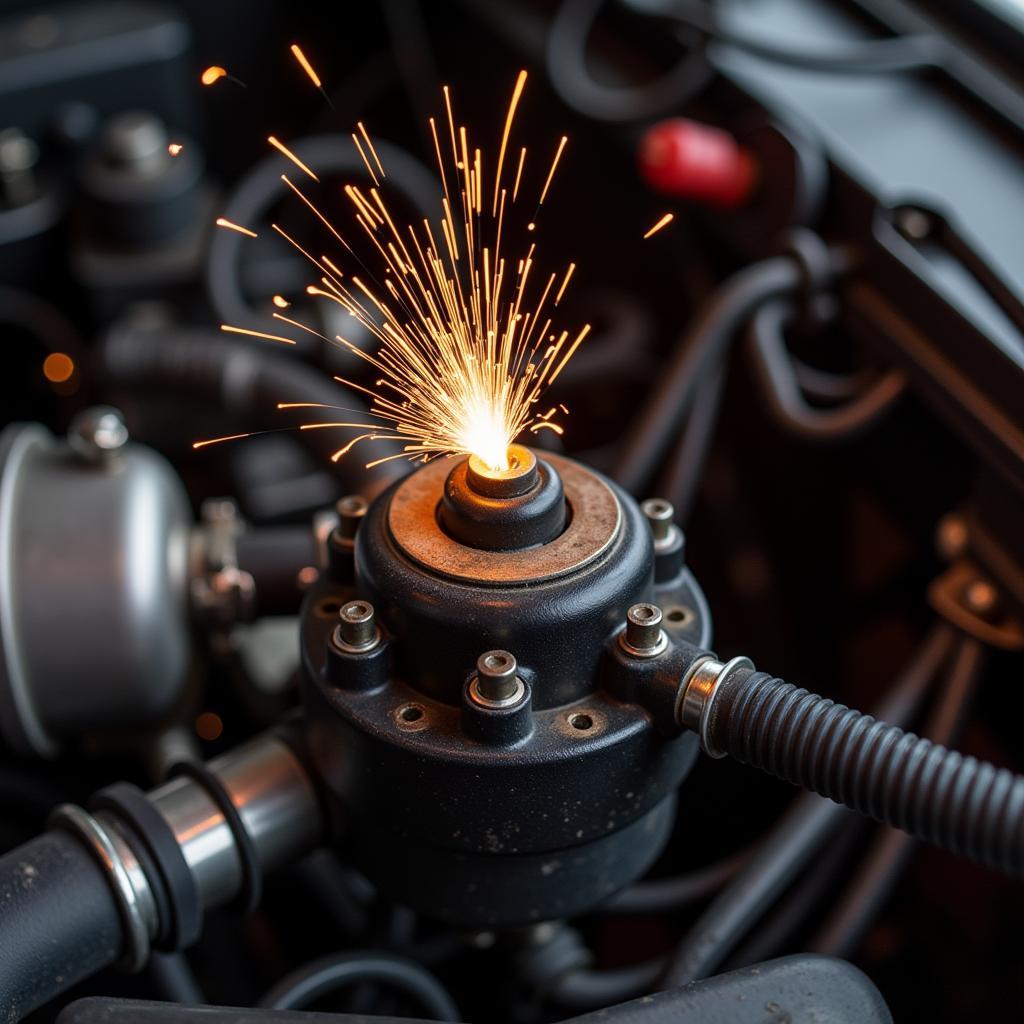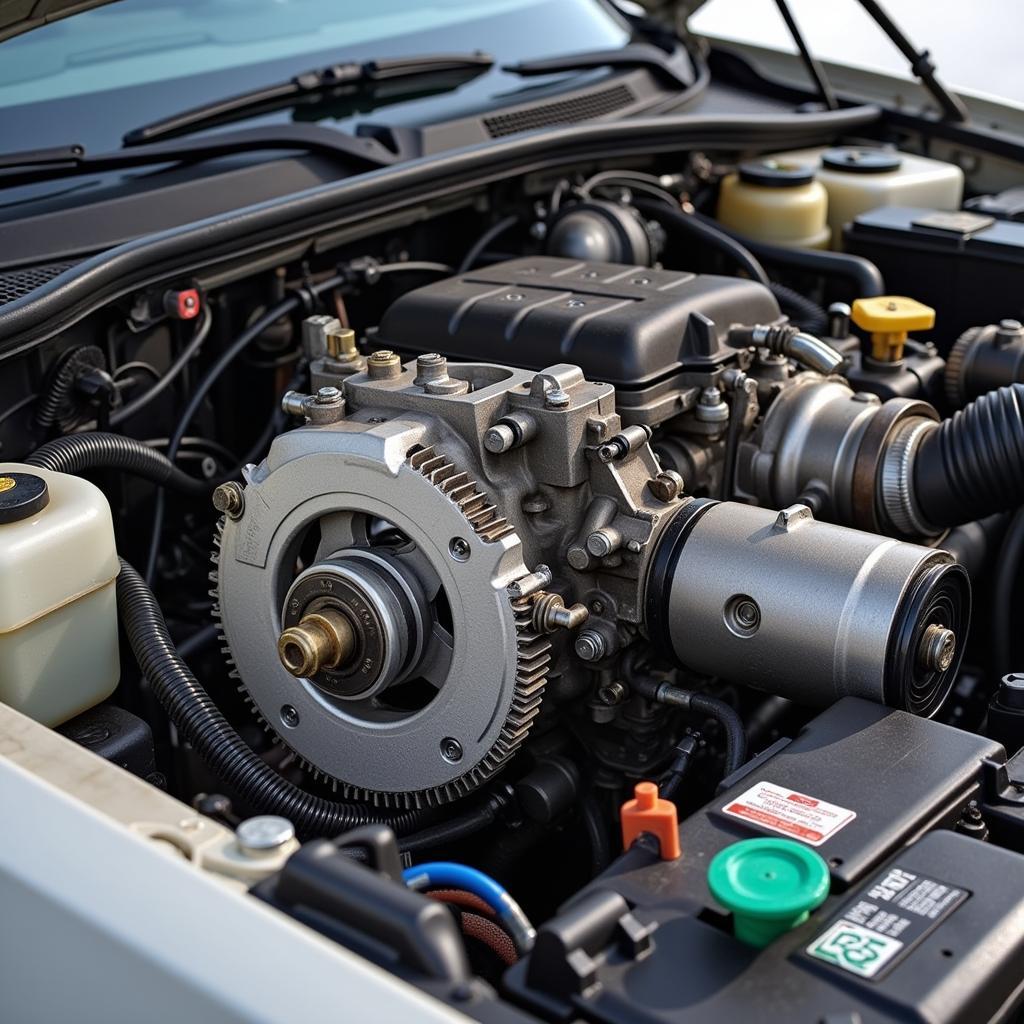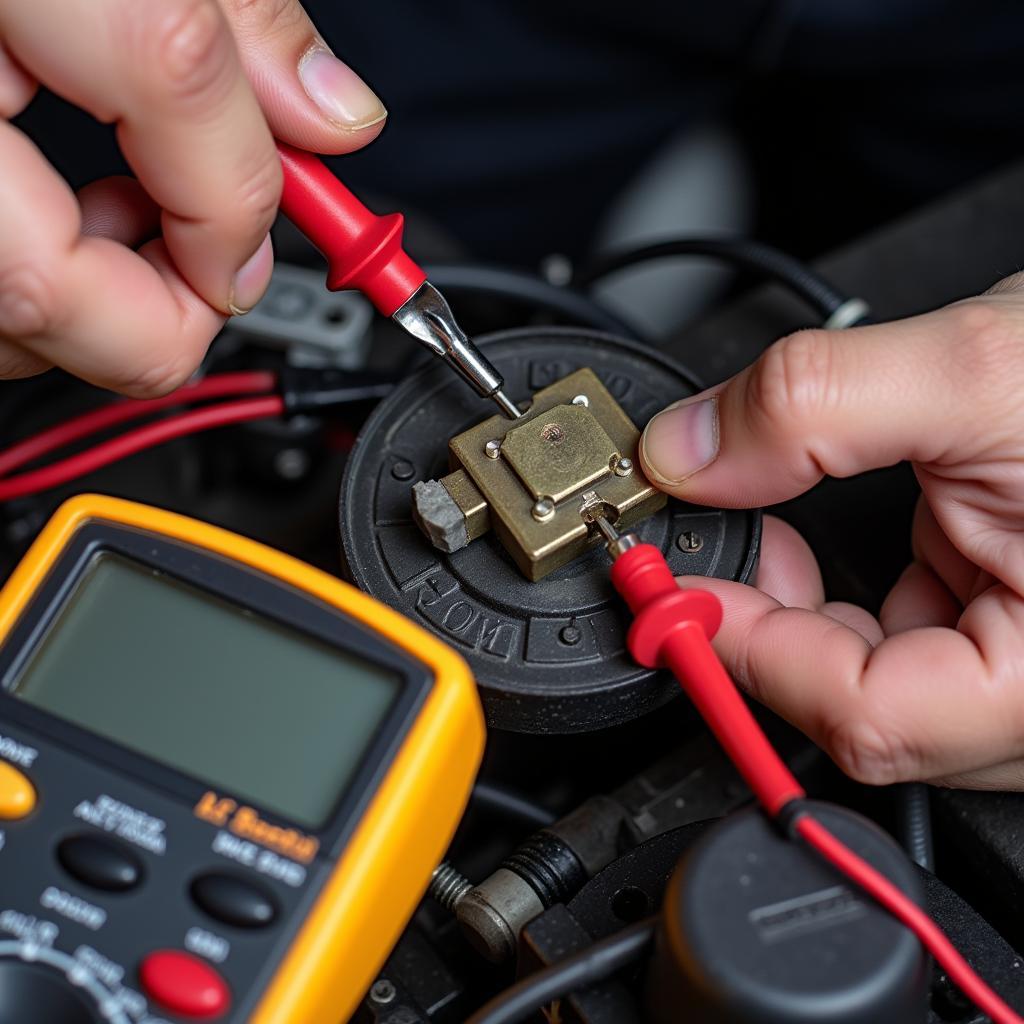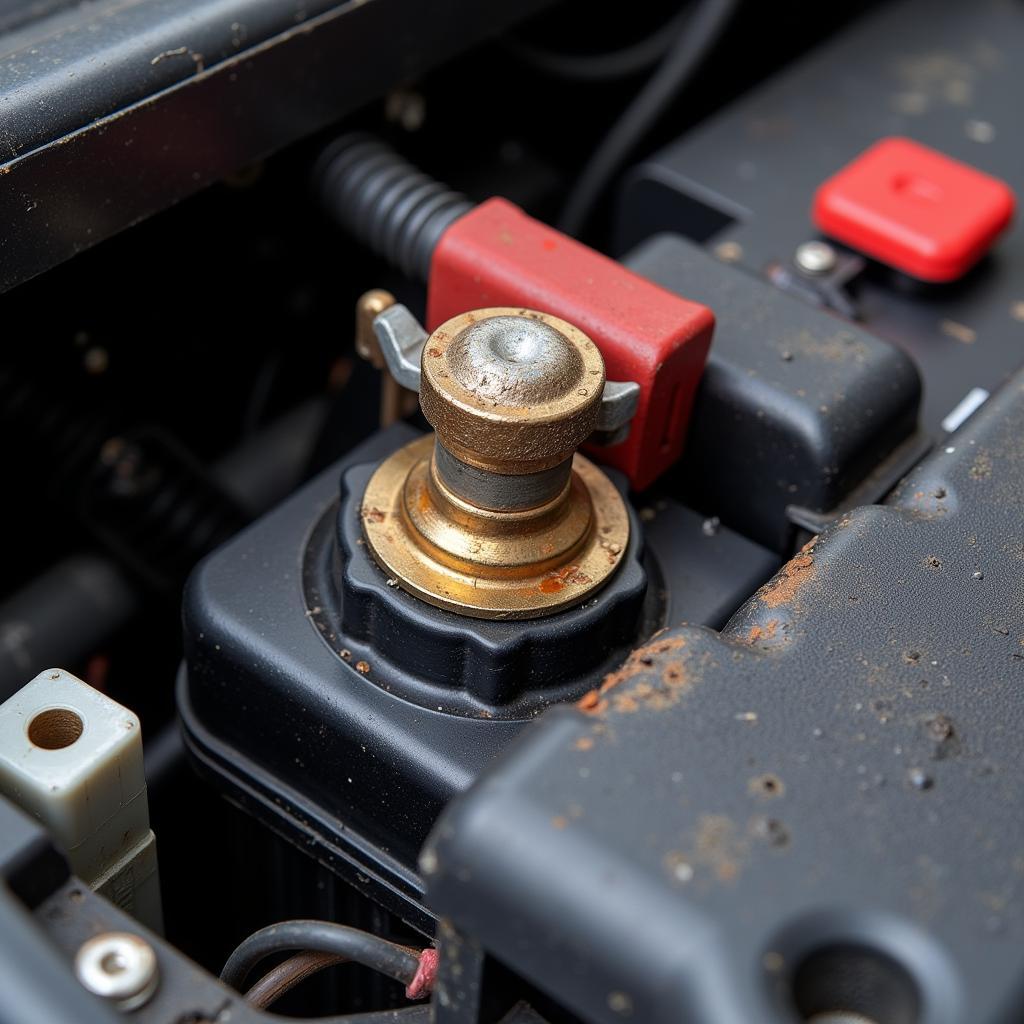Experiencing car starting problems? A failing starter is often the culprit. Knowing the Symptoms Of A Car Starter Problem can save you time, money, and frustration. This article explores the most common indicators of a failing starter, helping you quickly identify the issue and take appropriate action. Learn more about common car starting issues. my car is giving problems starting sometimes
What Are the Telltale Symptoms of a Car Starter Problem?
Several key symptoms point to a failing car starter. Recognizing these signs early can prevent a complete failure and leave you stranded.
-
Clicking Sound: One of the most recognizable symptoms is a rapid clicking noise when you turn the key. This usually indicates a low battery or a faulty starter solenoid, the electrical switch that engages the starter motor. Sometimes, the clicking can be a sign of corrosion on the battery terminals. Check and clean your terminals before jumping to conclusions.
-
Grinding Noise: A grinding sound when you try to start your car suggests that the starter gear is not meshing correctly with the engine’s flywheel. This could indicate a worn-out starter Bendix, the gear on the starter motor, or a damaged flywheel.
-
The Engine Doesn’t Crank: If you turn the key and nothing happens, it’s a strong indication of a starter problem. This could stem from several issues, including a faulty starter motor, a bad ignition switch, or a dead battery. Proper diagnosis is crucial to pinpoint the exact cause.
 Clicking Sound Car Starter Failure
Clicking Sound Car Starter Failure
-
Smoke From the Starter: Smoke coming from the starter motor is a serious sign of an electrical overload or short circuit. This usually indicates a failing starter motor that needs immediate replacement. Continued attempts to start the car in this condition can cause further damage.
-
Intermittent Starting: If your car starts sometimes but not others, it could be a sign of a failing starter motor. This intermittent behavior can be particularly tricky to diagnose, as the starter might work perfectly fine one minute and then fail the next.
 Grinding Noise Starter Flywheel Damage
Grinding Noise Starter Flywheel Damage
Diagnosing Car Starter Problems UK and Beyond
Diagnosing car starter problems accurately often requires some basic tools and a methodical approach. While a professional mechanic can quickly diagnose the issue, understanding the basics can help you troubleshoot and potentially save money. diagnosing car problems uk and car starter problems symptoms are important resources.
-
Check the Battery: A dead or weak battery can mimic starter problems. Use a multimeter to check the battery voltage. If it’s low, try jump-starting the car. If the car starts, it points to a battery problem. If not, the issue lies elsewhere.
-
Test the Starter Solenoid: Use a test light or multimeter to check for power at the starter solenoid when the key is turned to the start position. If no power reaches the solenoid, it suggests a problem with the ignition switch or wiring.
-
Inspect the Starter Motor: Visually inspect the starter for any signs of damage, loose connections, or corrosion. If you suspect a faulty starter, tapping it gently with a hammer can sometimes temporarily restore functionality, allowing you to start the car and get to a mechanic.
 Testing Car Starter with Multimeter
Testing Car Starter with Multimeter
How Much Does it Cost to Fix a Car Starter?
The cost of fixing a car starter varies depending on the make and model of the vehicle and the labor rates in your area. Typically, the price can range from £150 to £500 or more. It’s essential to get a quote from a reputable mechanic before proceeding with any repairs.
“A properly functioning starter is crucial for reliable vehicle operation. Don’t ignore the symptoms, as delaying repairs can lead to more expensive issues down the line,” advises James Miller, Senior Automotive Technician at Miller’s Auto Repair.
Preventing Future Car Starter Problems
While not all starter problems are preventable, regular maintenance can help prolong the life of your starter motor.
-
Keep Your Battery Healthy: A strong battery is essential for a healthy starter. Ensure your battery is properly charged and free of corrosion.
-
Avoid Short Trips: Short trips don’t allow the battery to fully recharge, which can strain the starter over time.
-
Limit the Number of Start Attempts: Avoid repeatedly cranking the engine for extended periods. If the car doesn’t start after a few attempts, stop and investigate the problem.
problems in a car can be a real headache, especially when it prevents the car from starting. Understanding the most common problem of a car not starting is crucial for resolving the issue.
 Healthy Car Battery Terminals
Healthy Car Battery Terminals
Conclusion
Recognizing the symptoms of a car starter problem is crucial for timely repairs and preventing further damage. From clicking sounds and grinding noises to a complete no-start situation, understanding these indicators can save you both time and money. If you’re experiencing any of these symptoms, it’s best to seek professional help. Don’t hesitate to contact us at AutoTipPro for assistance. Our phone number is +1 (641) 206-8880, and our office is located at 500 N St Mary’s St, San Antonio, TX 78205, United States.
“Addressing starter problems promptly is a smart investment in the long-run health of your vehicle,” adds Sarah Chen, Lead Mechanic at Chen Automotive Solutions.




Leave a Reply